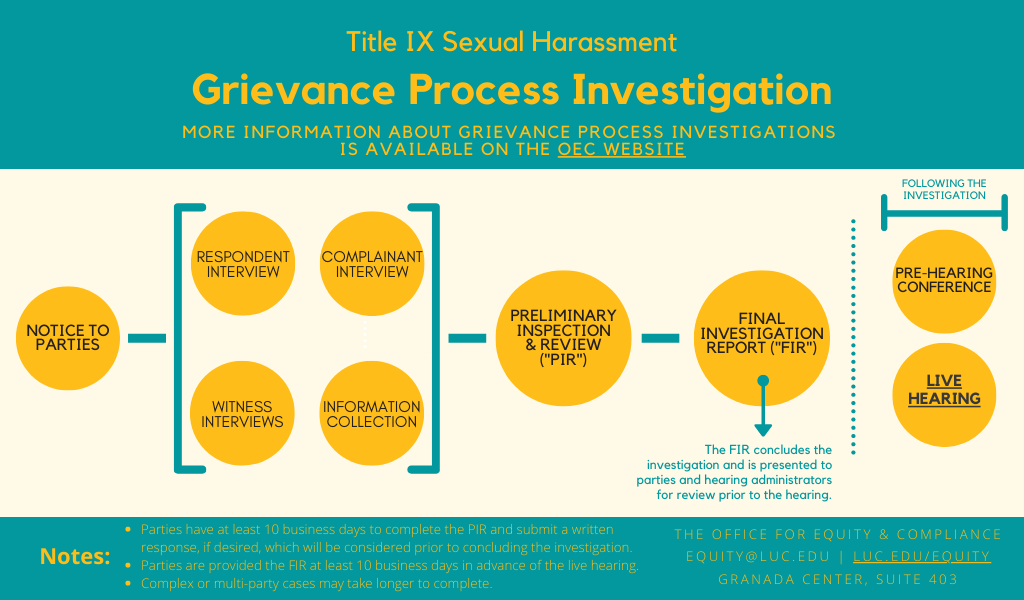Loyola University > Office for Equity and Compliance > Policy & Procedure > Resolution Procedures > Grievance Process > Investigation of a Grievance Process Complaint
Investigation of a Grievance Process Complaint
Investigation of a Grievance Process Complant
Investigations pursuant to a Grievance Process complaint include the thorough and impartial collection of all available evidence by one or more impartial investigators, and concludes with the investigator producing and presenting a Final Investigation Report to the parties for their review and preparation before a live hearing.
Investigations are prompt, thorough, reliable, impartial, and fair to both parties, and may involve interviews with relevant parties and witnesses; gathering and presenting available, relevant evidence; and other investigative steps, as needed.
